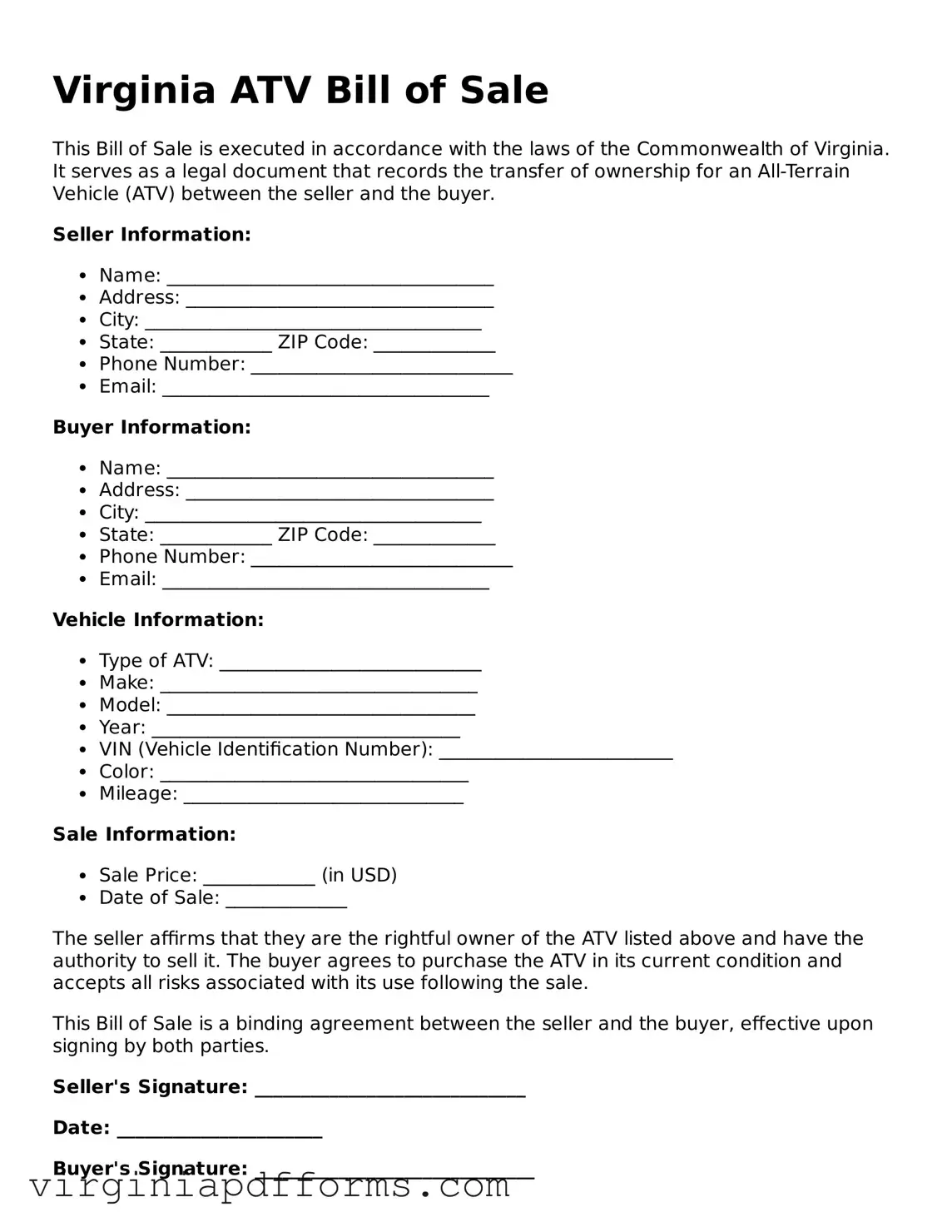Attorney-Approved Virginia ATV Bill of Sale Document
The Virginia ATV Bill of Sale form is a legal document used to record the sale and transfer of ownership of an all-terrain vehicle (ATV) in Virginia. This form serves as proof of the transaction between the seller and the buyer, ensuring that both parties have a clear understanding of the terms involved. By properly completing this document, individuals can protect their rights and responsibilities related to the sale.
Access My Document Now

Attorney-Approved Virginia ATV Bill of Sale Document
Access My Document Now

Access My Document Now
or
Free ATV Bill of Sale File
Need this form wrapped up fast?
Finish ATV Bill of Sale online — edit, save, download without effort.